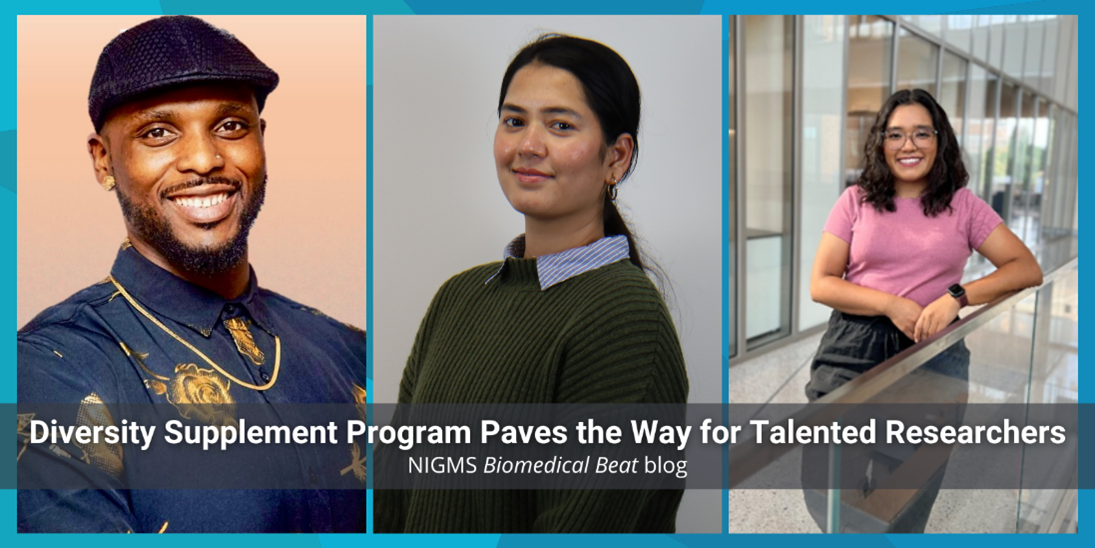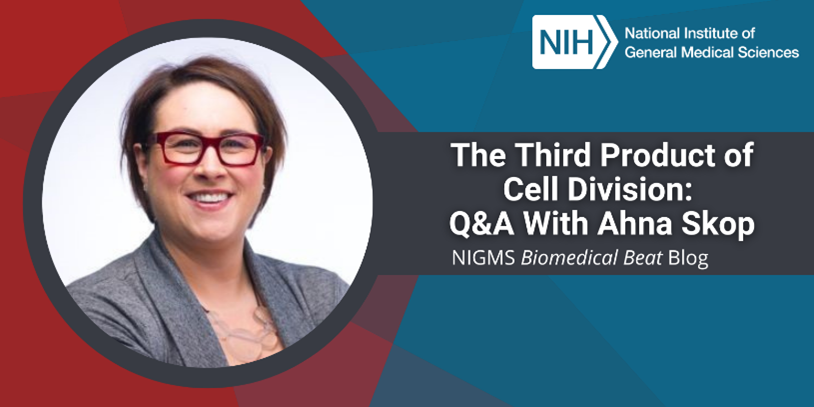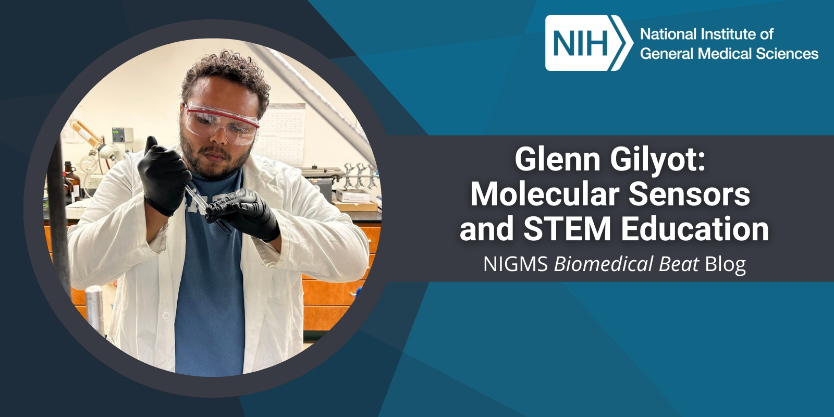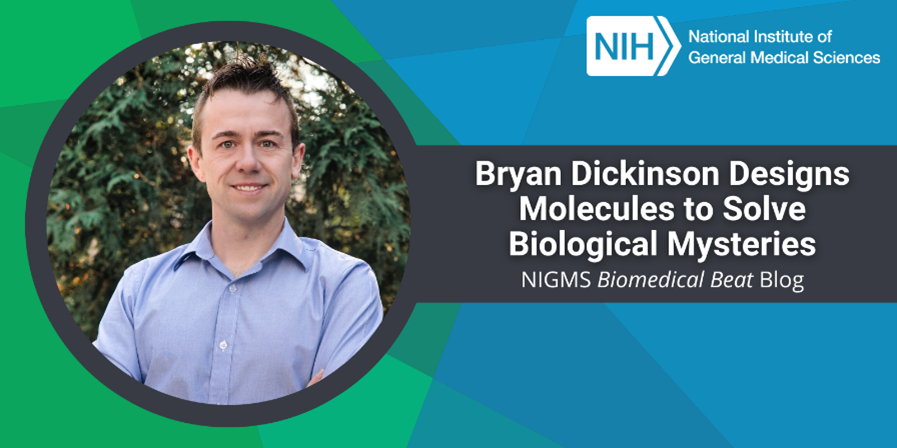“I hope that one day I’m able to increase our understanding of evolution, and I also hope to increase access to research. I want others to know that this space is open to people who look like me, who come from disadvantaged backgrounds, and who are underrepresented in the sciences,” says Nkrumah Grant, Ph.D., a postdoctoral research associate (postdoc) in microbiology and molecular genetics at Michigan State University (MSU) in East Lansing.
Dr. Grant’s work receives support from the NIGMS Diversity Supplement Program (DSP), which is designed to improve the recruitment and training of promising researchers from diverse backgrounds. Diversifying the scientific workforce can lead to new approaches to research questions, increased recruitment of diverse volunteers for clinical studies, an improved capacity to address health disparities, and many other benefits.
Dr. Grant and two other NIGMS DSP-supported researchers—Parmila Kafley and Karen Juanez—share their work, challenges, and advice for future scientists with us.
Back on the Right Path

Even when Dr. Grant was a child, nature and the sciences intrigued him. Much to his mom’s dismay, he loved to collect bugs and bring them home. But as he neared adulthood, he dropped out of high school and lost sight of his love for science.
Dr. Grant’s mom encouraged him to complete his high school education, and he eventually recognized the wisdom in her advice and earned his diploma. Along the way, one particular topic grabbed his attention: Assuming that evolution acts the same throughout the universe, how would hypothetical life on other planets develop? For example, what would life on a planet with two suns or a different atmosphere than Earth look like?
After attending community college and earning a bachelor’s degree in biology, Dr. Grant launched a career studying bacterial evolution. During graduate school at MSU under the guidance of Richard Lenski, Ph.D., he worked on the long-term evolution experiment (LTEE), which began in 1988 and is the longest-running project of its type. The LTEE tracks the evolution of the bacterial species Escherichia coli (E. coli) in the laboratory. Every couple of months, small samples of the cell cultures are frozen and serve as a type of fossil record of the bacteria’s evolution so that researchers can compare the ancestral bacteria to the evolved bacteria. For one of the studies, Dr. Grant used microscopy to take images of individual bacterial cells to show how their size and shape evolved over time.
Now, after working as a postdoc at the University of Idaho, Dr. Grant is back at MSU and funded by the DSP working in the lab of Christopher Waters, Ph.D. He’s studying Vibrio cholerae (V. cholerae), the bacteria that causes the diarrheal disease cholera and wants to understand how its genome evolved and how its genes interact with one another. An organism may be able to live without one gene, but losing more than one could be lethal. Dr. Grant hopes to identify sets of V. cholerae genes whose losses are lethal, because these could serve as targets for cholera treatments.
As he looks back on his career so far, Dr. Grant is proud of the scientific advancements he’s made and the personal choices that enabled them: “My trajectory was so jagged, but I’ve gotten on the right path. And I’m proud that I’ve stayed true to myself and my roots during that journey.” Dr. Grant is about to take the next step in his career by joining the University of Illinois Urbana-Champaign as an assistant professor of microbiology in the fall of 2023. “I believe that with hard work and determination, anyone, from any background, can be a scientist,” he says.
An Early Fascination
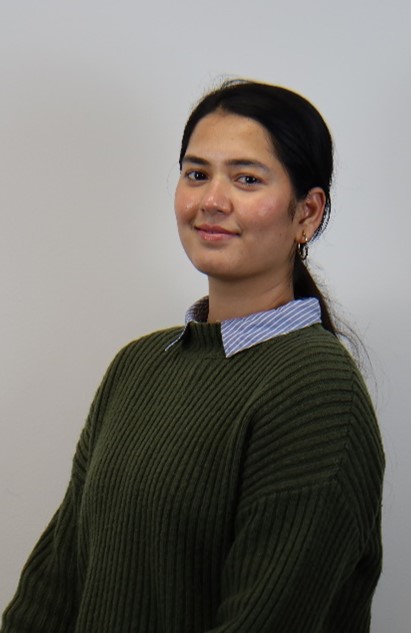
Parmila Kafley is a fourth-year Ph.D. student at Temple University in Philadelphia, Pennsylvania. But long before she started graduate school, Parmila moved to the United States from Nepal. As a grade 8 student still learning to speak English, she became interested in science. “I still remember that my first science lesson was about atoms. What fascinated me about these tiny particles was that they explain the physical changes we see in the world around us,” Parmila says.
After high school, Parmila attended the University of Pittsburgh in Pennsylvania, majoring in chemistry and political science. Her first research experience was in a lab that used cheminformatics methods to study protein folding. She then began working in the lab of Haitao Liu, Ph.D., studying techniques to isolate and kill bacteria using small silicone chips with indentations that complement the shape of the bacteria. When a sample passes over the chips, bacteria fall into and are captured within the indentations. Then, low-voltage electricity flows through the chips to kill the bacteria.
After her experiences in Dr. Liu’s lab, Parmila knew she wanted to pursue a Ph.D. in chemical biology. She joined the lab of Rongsheng Wang, Ph.D., to research post-translational modifications, which are reversible chemical changes made to proteins after they’ve been translated from mRNA in order to alter the protein’s functional properties, like activity and stability. In some types of diseases, such as autoimmune disorders, the enzymes that make these chemical changes become dysregulated. With DSP funding, Parmila is trying to identify the proteins modified by these dysregulated enzymes, which may lead to a greater understanding of why these modifications occur and how they relate to the onset of disease.
Though research is a difficult field to work in because experiments often don’t go as planned, being a first-generation college student has been a bigger challenge for Parmila. “I sought out mentors along the way, but I didn’t have someone to guide me through college and graduate school applications like others might’ve,” says Parmila. “In a way, I had to figure out the path while I was on it. It was tough, but having to navigate that process taught me how to be resourceful and independent—two great skills to have in graduate school.”
Finding Her Passion
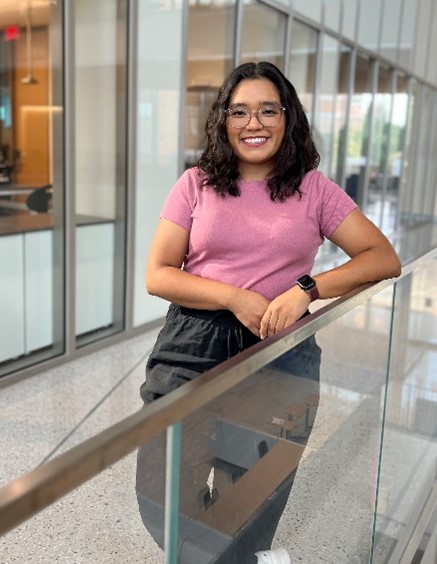
Also a first-generation college student, Karen Juanez began her undergraduate career at the University of Texas Arlington (UTA) as an architecture student, but she felt like something was missing. “Navigating higher education was a challenge,” she says. “In the beginning everything was so new to me, and I didn’t know how to properly study or where to go for help.” Then she took courses like physics and microbiology that introduced her to the world of science, and she found her sense of passion.
Karen graduated from UTA with a double major in microbiology and biology, as well as a strong desire to become a researcher. “I took a class that introduced us to research as a career. We learned how to read scientific articles, how to write research proposals and grants, and what it meant to be a scientist,” she explains. “I loved it. The idea of discovering basic biological principles and understanding human health problems was and is very exciting to me.”
After graduation, Karen joined the lab of Piya Ghose, Ph.D., at UTA as a postbaccalaureate student studying cell death. Some types of cell death occur normally throughout an organism’s life, and others happen in response to injury. NIGMS-DSP funds have allowed Karen to study a type of cell death called compartmentalized cell elimination (CCE) and how it helps remove specific cells that are no longer needed during normal development. By studying CCE in the research organism Caenorhabditis elegans, Karen and Dr. Ghose hope to contribute to our understanding of brain development and neurodegeneration in humans.
In the coming years, Karen plans to pursue a Ph.D. or M.D.-Ph.D. Her advice for young students hoping to study science is, “If being a scientist sounds intimidating, keep studying and pursuing your passion; it’s more about perseverance and determination than about being the smartest person in the room.”
Dr. Grant, Parmila, and Karen are funded by the NIGMS DSP through grants R35GM139537-02S1, R35GM133468-05S1, and R35GM142489-03S1, respectively.


